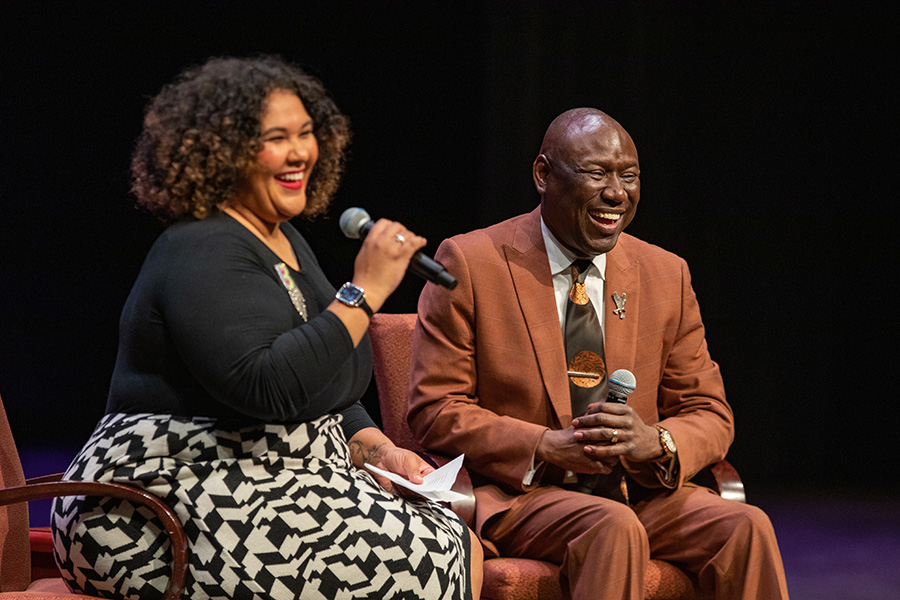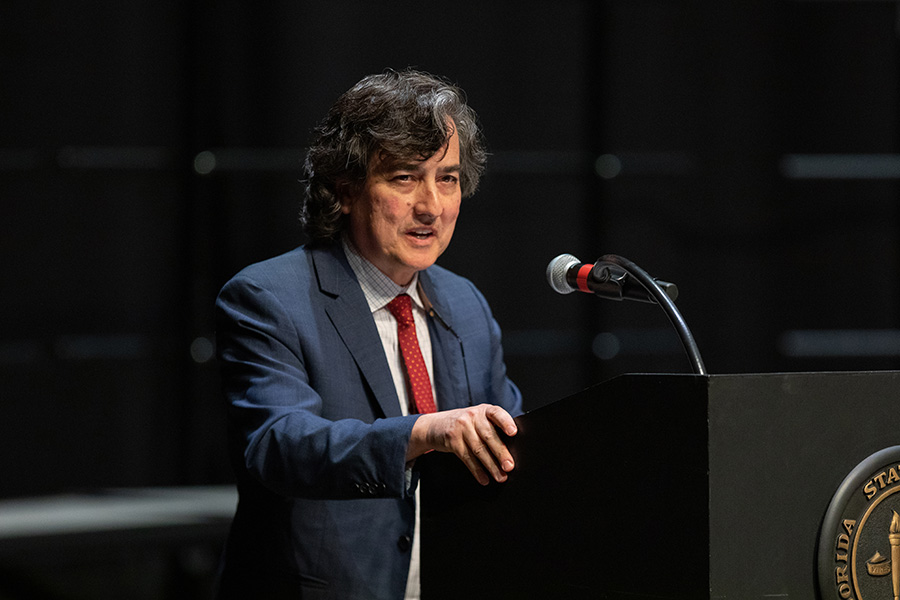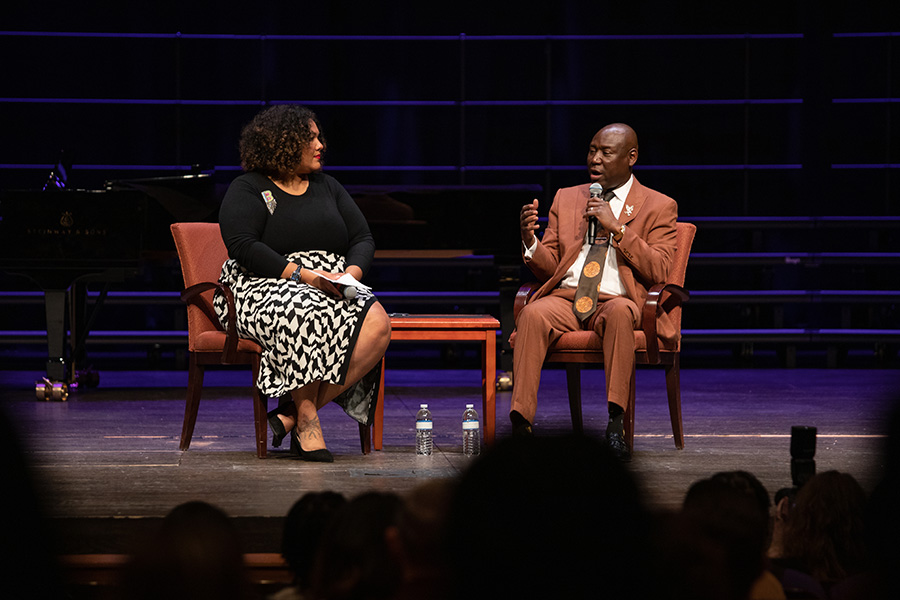
Renowned civil rights attorney Ben Crump returned to his alma mater as a featured speaker during Florida State University’s MLK Commemoration Celebration Tuesday, Jan. 17.
The established lawyer offered his insights, experience and legal expertise as part of FSU’s 35th annual Martin Luther King Jr. Week of Celebration, which provided the campus with opportunities for celebration, service and dialogue on the civil rights movement and social justice issues in America today.
Assistant Professor Shantel Buggs from the College of Social Sciences and Public Policy moderated Crump’s talk, which was part of the Golden Tribe Lecture Series.
Crump is a two-time FSU graduate, who earned a bachelor’s degree in criminal justice and a juris doctor degree. During his lecture, Crump reminisced fondly on his time as a student and how it helped mold him into the person he is today.
“Being here at Florida State helped me find my purpose,” he said. “A lot of the things I learned from Florida State, I literally go argue them in the highest courts around the world, whether it’s at the State Supreme Court, the U.S. Supreme Court or even in the United Nations.”
The founder and president of Ben Crump Law, Crump has worked on many nationally recognized civil rights cases of Black victims, including Trayvon Martin, Ahmaud Arbery, Breonna Taylor and George Floyd. He told the audience that he continues to advocate for social justice so that everyone has an equal opportunity to achieve the American dream.
“Whether it’s Trayvon or Breonna or George Floyd, any number of the tragedies, what it really is about is trying to say that all our children, all people are clothed with humanity, and that as citizens, they have promised constitutional rights,” Crump said.
Crump said that Dr. King gave some of the best legal advice in a letter he wrote from a Birmingham jail cell, where he was imprisoned as a participant in nonviolent demonstrations against segregation. The letter was his response to a public statement of concern and caution issued by eight white religious leaders of the South.
“He said just because they call it legal, that doesn’t mean it’s right,” Crump said. “He said that slavery was legal, but that didn’t make it right. He said segregation was legal, but that didn’t make it right. We must make the law be an instrument for good.”
Crump called that letter “one of the greatest essays ever written in the course of human history,” and used it to highlight the hatred that Martin Luther King Jr. endured while he was alive.
“We romanticize Martin Luther King today in America, but we have to remember when Martin Luther King was advocating for equality for all and social justice, he was hated,” he said. “You are not remembered in history unless you take a stand for something. And Martin Luther King took a stand.”
Crump’s talk followed opening remarks by FSU Provost Jim Clark and awards presentations.
Rose Skepple, coordinator at the School of Teacher Education in the College of Education, received the Martin Luther King Jr. Distinguished Service Award. Gabriela Behar, a freshman majoring in political science, and Michelle Rodriguez, a second-year law student (juris doctor), both received the Dr. Martin Luther King Jr. Book Stipend awards.
Established in 1986, the Martin Luther King Jr. Distinguished Service Award honors a faculty member, administrator or staff member for his or her outstanding service in keeping with the principles and ideals of Dr. King. A tremendous honor in itself, the award also comes with a $1,000 stipend for the recipient.
The Dr. Martin Luther King Jr. Book Stipend Award is a scholarship intended to support FSU students in completing their education and is available on a competitive basis to undergraduate and graduate students. The awards are endowed by the Office of the Vice President for Student Affairs, the FSU National Black Alumni and the New Student & Family programs.







